Featured
How APC government beguiled NLC, TUC into agreement to suspend national strike
Published
5 years agoon
By
Olu Emmanuel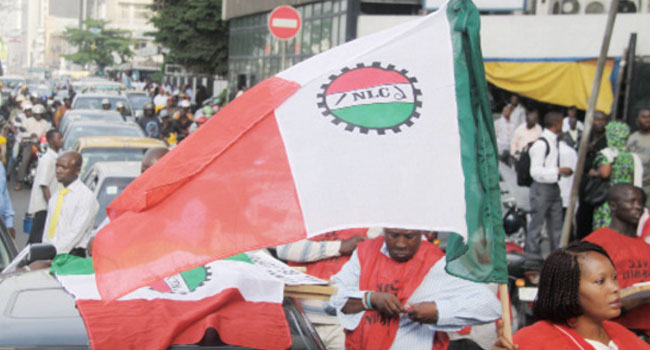
The federal government at the Sunday dialogue in Abuja overwhelmed the Organised Labour represented by the Nigeria Labour Congress (NLC) and the Trade Union Congress (TUC), preventing them from leading the national strike to protest the increase in electricity tariff and pump price of petrol by the All Progressives Congress (APC) government earlier scheduled for Monday. After weeks of notice of the planned national strike and demand for reversal of price increases, the APC government at the emergency meeting on Sunday successfully beguiled the Organised Labour that certain actions would be taken by the government after ignoring the demand and the strike warning. The organsied labour succumbed to the guile of the government without achieving the set goal, though, relying on promises of measures the government intends to take.
Accordingly, a joint communique was issued on the resolution of trade dispute between the federal government and the Organized Labour represented by the Nigeria Labour Congress (NLC) and the Trade Union Congress (TUC) held at the State House Banquet Hall, Abuja, on Sunday less than 24 hours to the commencement of the national strike.
The negotiating teams that signed the communique include: representatives of Organised Labour – Ayuba Wabba, NLC President; Quadri Olalaye, TUC President; Emmanuel Ugboaja, Secretary General, NLC; Musa Lawal Ozigi, Secretary General, TUC; Williams E. Akporeha, NUPENG President; Festus Osifo, PENGASSAN President, Martin Uzoegwu, President, NUEE; and Chris N. Okonkwo, President, SSAEAC;
and the Government team include: Timipre Sylva, Min. of State, Petroleum; Festus Keyamo, SAN, Min. of State Labour & Employment; Alh Lai Mohammed, Min. of Information & Culture; Godwin Jedy-Agba, Min. of State Power; Dr. Chris Nwabueze Ngige, Minister of Labour & Employment; Boss Mustapha, Secretary to the Government of the Federation.
The communique reads: A Bipartite Meeting between the FGN and the two Labour Centres – Nigeria Labour Congress (NLC) and Trade Union Congress of Nigeria (TUC), having been convened at the Banquet Hall, State House, Abuja to discuss emerging labour issues arising from recent cost – reflective Electricity Tariff adjustments and deregulation of the downstream sector of the Petroleum Industry,
Recognizing the public outcry and protest over the recent Federal Government twin policies on Electricity Tariff Reform and full implementation of deregulation of the downstream sector of the Nigerian Oil and Gas Industry resulting in the planned nation-wide industrial action by Organised Labour,
Bearing in mind the spiral and negative impact of COVID-19 pandemic on world economy,
Further bearing in mind that due to impact of COVID-19 pandemic the world is undergoing socio-economic transition which has affected price stability, sustainability of enterprises, employment, and other socio-economic indices, Acknowledging that the spiral and negative impact of COVID-19 pandemic on the global economy has given rise to the need for a new socio-economic order, Recognising the need to sustain enterprises for retention and creation of jobs as well as sustainable growth and development, Acknowledging the need for social concertation between the Federal Government and workers’ representatives, namely the two Labour Centres – The NLC and TUC, To aid in the dialogue and communication, the Federal Government side made presentations to show the state of economy and the drive behind the recent cost – reflective Electricity Tariff adjustments and deregulation of the downstream sector of the Petroleum Industry.”
The communique indicated that a bipartite meeting address and resolve the issues in dispute between the FG and Labour Centres on September 15, 24, and 27, 2020. It further indicated that: “After exhaustive deliberations on the issues raised by Labour Centres, the FGN stated that it has fashioned out palliatives that would ameliorate the sufferings that Nigerian workers may experience as a result of the cost – reflective Electricity Tariff adjustments and deregulation of the downstream sector of the Petroleum Industry. “The palliatives will be in the areas of transport, power, housing, agriculture and humanitarian support.”
It was declared that after thorough debates and negotiations on various issues raised by all parties, the following resolutions were reached and mutually adopted:
ELECTRICITY TARIFF REFORMS
The parties agreed to set up a Technical Committee comprising Ministries, Departments, Agencies, NLC and TUC, which will work for a duration of two weeks effective Monday 28th September 2020, to examine: the justifications for the new policy in view of the need for the validation of the basis for the new cost reflective tariff as a result of the conflicting information from the fields which appeared different from the data presented to justify the new policy by NERC; metering deployment, challenges, timeline for massive roll – out.
It was indicated that the Technical Committee membership is as follows: Festus Keyamo, SAN, Minister of State Labour & Employment – Chairman; Godwin Jedy-Agba, Minister of State Power – Member; Prof. James Momoh, Chairman National Electricity Regulatory Commission – Member; Engr. Ahmad Rufai Zakari, SA to the President on Infrastructure – Member/Secretary; Dr. Onoho’Omhen Ebhohimhen – Member; for the NLC Comrade Joe Ajaero – Member; Comrade Chris Okonkwo – Member, TUC; one Representative of DISCOS – Member.
The communique stated that the Terms of Reference (ToR) are as follows:
To examine the justification for the new policy on cost – reflective Electricity Tariff adjustments.
To look at the different Electricity Distribution Company (DISCOs) and their different electricity tariff vis-à-vis NERC order and mandate.
Examine and advise Government on the issues that have hindered the deployment of the six million meters.
To look into the NERC Act under review with a view to expanding its representation to include organized labour.
The Technical sub – committee is to submit its report within two (2) weeks. During the two weeks, the DISCOs shall suspend the application of the cost – reflective Electricity Tariff adjustments.
The meeting also resolved that the following issues of concern to Labour should be treated as “stand – alone” items: The 40% stake of Government in the DISCO and the stake of workers to be reflected in the composition of the DISCO’s Boards.
An all-inclusive and independent review of the power sector operations as provided in the privatization MoU to be undertaken before the end of the year 2020, with Labour represented.
That going forward, the moribund National Labour Advisory Council (NLAC) be inaugurated before the end of the year 2020 to institutionalize the process of tripartism and socio dialogue on socio – economic and major labour matters to forestall crisis
DOWNSTREAM SECTOR DEREGULATION
The Communique also indicated that consequent upon the critical review of the various challenges of the downstream sector of the Nigeria oil and gas industry vis-a-vis the incalculable losses associated with a subsidy regime the Country has been incurring in terms of, stifled growth in the downstream sector, diminished human capital development and massive financial leakages and flight. It explained that this is in addition to the dire financial circumstances of the Federation that precludes any ability to sustain any subsidy on PMS and making deregulation of PMS inevitable.
It was declared that consequently, the Parties agreed to the following:
All parties agreed on the urgency for increasing the local refining capacity of the nation to reduce the overdependency on importation of petroleum products to ensure energy security, reduce cost of finished products, increase employment and business opportunities for Nigerians.
To address (1) above, NNPC to expedite the rehabilitation of the nation’s four refineries located in Port Harcourt, Warri and Kaduna and to achieve 50% completion for Port Harcourt by December 2021, while timelines and delivery for Warri and Kaduna will be established by the inclusive Steering Committee.
To ensure Commitment and transparency to the processes and timelines of the rehabilitation exercise, the management of NNPC has offered to integrate the national leadership of the Nigeria Union of Petroleum and Natural Gas Workers (NUPENG) and Petroleum and Natural Gas Senior Staff Association (PENGASSAN) into the Steering Committee already established by the Corporation.
A Validation team comprising the representatives of the NNPC, Nigeria Extractive Industries Transparency Initiative (NEITI), Infrastructure Concession Regulatory Commission (ICRC), NUPENG and PENGASSAN will be established to monitor progress of the rehabilitation of the refineries and the pipelines/strategic depots network and advice the Steering Committee periodically.
Post rehabilitation, NNPC shall involve the PENGASSAN and NUPENG in the process of establishing the operational model of the Nation’s refineries.
The Federal Government will facilitate the delivery of licensed modular and regular refineries, involvement of upstream companies in petroleum refining and establishing framework for financing in the downstream sector.
NNPC to expedite work on the Build Operate and Transfer framework for the nation’s pipelines and strategic depots network for efficient transportation and distribution of Petroleum products to match the delivery timelines of the refineries as agreed.
The Federal Government and its agencies to ensure delivery of 1 million CNG/LPG AutoGas conversion kits, storage skids and dispensing units under the Nigeria Gas Expansion Programme by December 2021 to enable delivery of cheaper transportation and power fuel. A Governance Structure that will include representatives of organized Labour shall be established for timely delivery.
GENERAL INTERVENTION
To cushion the impacts of the downstream sector deregulation and tariffs adjustment in the power sector, the Federal Government will implement the following:
A specific amount to be unveiled by the FGN in two weeks’ time will be isolated from the Economic Sustainability Programme Intervention Fund and be accessed by Nigerian Workers with subsequent provision for 240,000 under the auspices of NLC and TUC for participation in agricultural ventures through the CBN and the Ministry of Agriculture. The timeline will be fixed at the next meeting.
Federal Government will facilitate the removal of tax on minimum wage as a way of cushioning the impacts of the policy on the lowest vulnerable.
Federal Government will make available to organized labour 133 CNG/LPG driven mass transit buses immediately and provide to the major cities across the Country on a scale up basis thereafter to all States and Local Governments before December 2021.
Housing: 10% be allocated to Nigerian workers under the ongoing Ministry of Housing and Finance initiative through the NLC and TUC.
Consequently, the NLC and TUC agreed to suspend the planned industrial action.
You may like
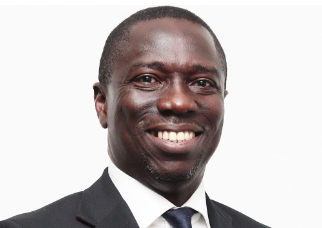

Ighodalo confident in Judiciary as He challenges Edo Governorship election results
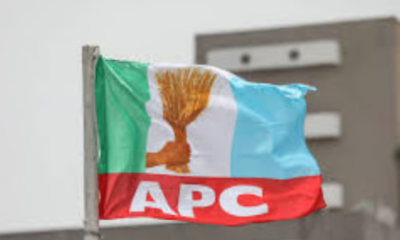

INEC Refutes APC claims of BVAS smuggling in Edo Governorship Election
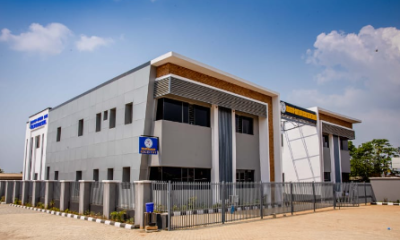

Igbogbo-Baiyeku LCDA inaugurates new legislative building
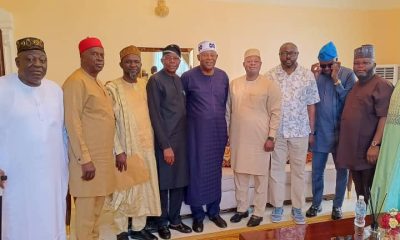

Faleke meets APC State Chairmen
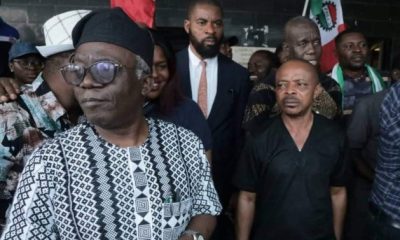

NLC President Joe Ajaero dismisses allegations, vows to continue advocating for workers
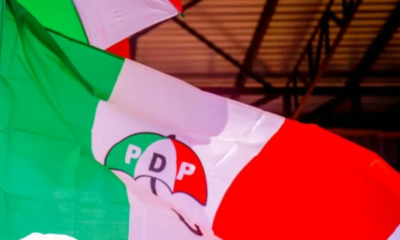

PDP slams APC over criticism of NSE visit to Osun State
Trending

 Business1 week ago
Business1 week agoNaira mixed across markets as official window dips, parallel market strengthens

 Football1 week ago
Football1 week agoUCL Playoff: Gordon scores four as Newcastle thrash Qarabağ 6-1

 Entertainment6 days ago
Entertainment6 days agoSinger Simi faces backlash after TikToker admits to false rape allegation

 Entertainment3 days ago
Entertainment3 days agoSimi addresses resurfaced 2012 tweets amid online backlash

 Business1 week ago
Business1 week agoThree Crowns Milk launches nationwide Ramadan campaign to promote heart-healthy nourishment

 Latest1 week ago
Latest1 week agoTinubu defends electoral reform, downplays mandatory real-time upload

 Comments and Issues6 days ago
Comments and Issues6 days agoNigeria’s Declining Oil Output and Soaring Foreign Portfolio Investment Inflow

 Business6 days ago
Business6 days agoPENGASSAN warns Tinubu’s executive order on oil revenues could jeopardise 4,000 jobs

